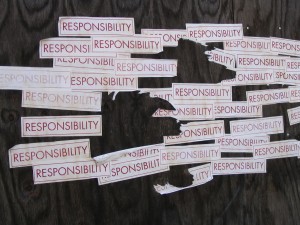Moving from high school to college can be daunting. It’s your first step toward independence and adult responsibility. You transition from someone dictating your every move (parents) to the freedom of making every decision. Don’t expect, however, to ease right into college life without an adjustment period. College life will be much easier if you expect some bumps in the road and some course adjustments along the way.

A recent report on college dropout rates presented some shocking statistics – 46% of those who enter college fail to graduate within six years. What you do your first year of college can impact not only your college years but your future. This makes the beginning weeks and months on campus critical for all new students.
Here are 10 tips to ease into college and help with the transition:
1). Don’t skip orientation.
Orientation helps you become familiar with the campus, its opportunities and on-campus organizations. During orientation you will meet your advisors, plan your schedule and do some group activities with other incoming freshmen. Skipping orientation is like skipping the first day of work. Orientation helps you ease into life on campus.
2). Make a friend.
Your college experience will be enhanced by the friendships you make. The first few months are the easiest time to make new friends. You can start with your roommate, your dorm mates, and your classmates. College is not the place to foster your inner shyness; it’s your opportunity to branch out, meet new people and make new relationships.
3). Get organized.
Since your parents won’t be there reminding you to study for your test, do your homework and go to class, you need to get organized. Keep a calendar, set alarms, make to-do lists, schedule study time, and keep track of all your term paper deadlines. Organization will give you peace of mind and alleviate those last minute panic attacks before a test or term paper due date.
4). Make academics a priority.
Even if you were an excellent high school student, this is college. Academics will be more challenging. Without constant parent nudging, it’s tempting to let the studying slide and skip class. If you begin to struggle or feel overwhelmed, get help. Speak with your professors. Take advantage of on-campus tutoring services. Don’t ignore the problem; act before your grades start a downward spiral.
5). Call home.
Every new college student gets homesick. Make time to call your family. They know you better than anyone else and will remind you that you always have their support. Set aside a time each week to talk with your family. It will curtail the homesickness and ease your parents’ inevitable tendency to worry.

 If you have more than one child, odds are they are different. One may excel academically and the other may struggle. Parenting both types of students is a challenge for parents, especially if there is competition among the two. I know. I had one of each in my home for 18+ years.
If you have more than one child, odds are they are different. One may excel academically and the other may struggle. Parenting both types of students is a challenge for parents, especially if there is competition among the two. I know. I had one of each in my home for 18+ years.





